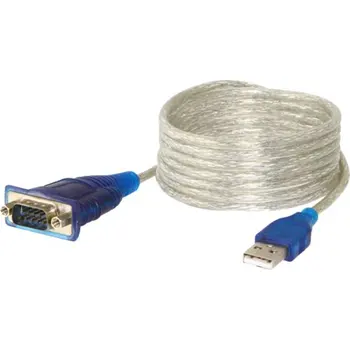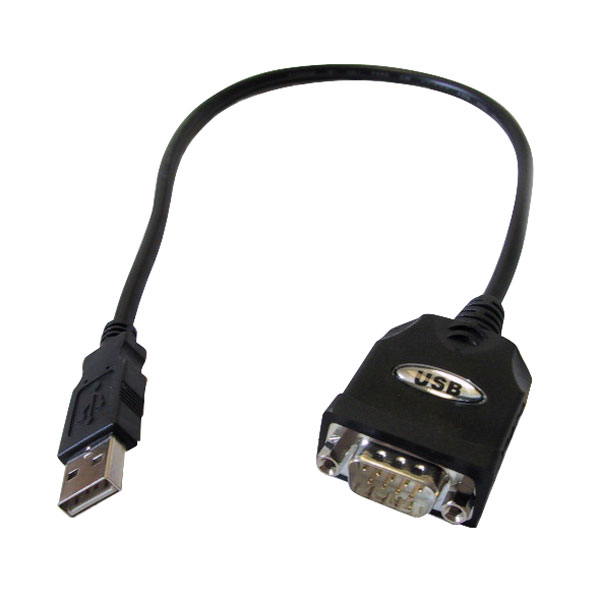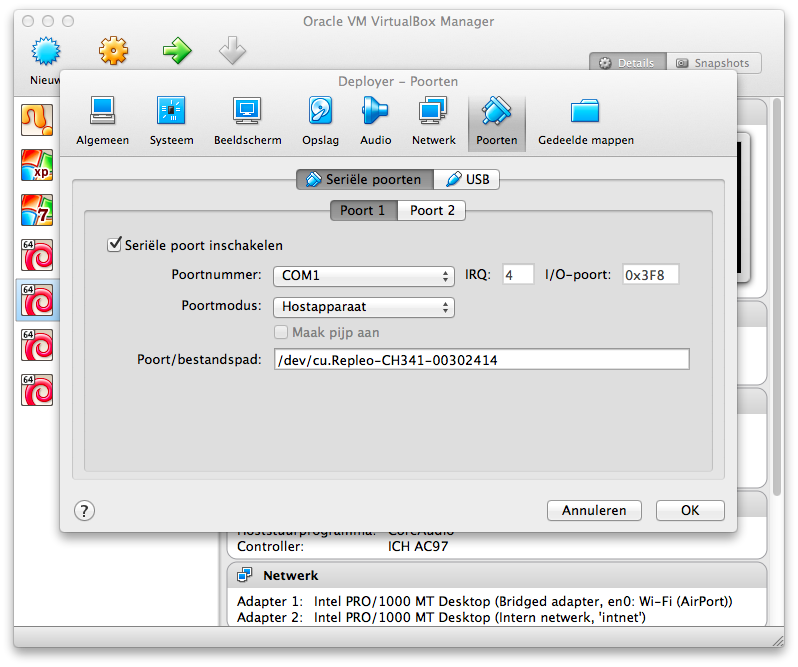I could not select the serial port in my Arduino IDE. It is greyed out even if I connect my USB to serial cable. What is the proper driver for that and where I can find that? Serial port for Arduino in Mac closed Ask Question Asked 4 years, 2 months ago. If multiple USB devices are not working on a particular port, or all ports, then it’s obviously less likely to be a device issue, and more likely to be related to the Mac itself. Gearmo 2 Port Professional USB to Serial Adapter with TX/RX LED and COM Retention FTDI Chip and Fast 920K Per Port Transfer Speed - Win XP, 7, 8, and Windows 10, Mac. While entering the serial port name into the code in arduino IDE, enter the whole port address i.e: /dev/cu.usbmodem. or /dev/cu.UG-. where the. is the port number. And for the port number in case of mac just open terminal and type. Ls /dev/. and then search for the port that u have set in arduino IDE. You'll need to get a usb-serial adapter and then connect with a console cable. Adapters aren't very expensive. Connecting to the Console Port with Mac OS X To connect a Mac OS X system USB port to the console using the built-in OS X Terminal utility, follow these steps: Step 1 Use the Finder to go to Applications Utilities Terminal. Jul 12, 2011 Once that is up and connected (and if the serial ports are set to the same baud rate and paramters), you can type on either side and see the characters come across. USB Serial on the Mac is a real melding of the very new and very old.
Information about these and other types of Mac ports is in the specifications for your Mac: Choose Apple menu > About This Mac, click Support, then click Specifications. Or check your Mac user guide.
Thunderbolt 3
Use Thunderbolt 3 with displays and other devices that connect using either a Thunderbolt 3 cable or USB-C cable. You can also connect a USB-C power adaptor and cable to charge your notebook computer. If you have a device that doesn't connect to this port, you might be able to use an adaptor to connect it.

These Mac models have Thunderbolt 3 ports:
- MacBook Pro introduced in 2016 or later
- MacBook Air introduced in 2018or later
- iMac introduced in 2017 or later
- iMac Pro (all models)
- Mac mini introduced in 2018
- Mac Pro introduced in 2019
If your Mac notebook or desktop computer has more than one port like this, each port supports ThunderBolt 3 and USB-C.
USB-C
Use USB-C with displays and other devices that connect using a USB-C cable. You can also connect a USB-C power adaptor and cable to charge your notebook computer. If you have a device that doesn't connect to this port, you might be able to use an adaptor to connect it.
MacBook models introduced in 2015 or later have a single USB-C port. This port doesn't support Thunderbolt devices.
If your Mac has only one port like this, it's a MacBook that supports USB-C but not Thunderbolt.
Thunderbolt
Use Thunderbolt or Thunderbolt 2 with displays and other devices that connect using a Thunderbolt cable.

These Mac models have Thunderbolt or Thunderbolt 2 ports:
- MacBook Pro introduced in 2011 until 2015
- MacBook Air introduced in 2011 until 2017
- Mac mini introduced in 2011 until 2014
- iMac introduced in 2011 until 2015
- Mac Pro introduced in 2013
Thunderbolt and Thunderbolt 2 are not the same as Mini DisplayPort . They have the same shape, but use different symbols on the cable and port. However, this port does support Mini DisplayPort for video output, so you can use a Mini DisplayPort cable to connect a Mini DisplayPort display.
Mini DisplayPort
Use Mini DisplayPort with displays that connect using a Mini DisplayPort cable.
These Mac models have Mini DisplayPort:

- MacBook Pro introduced in late 2008 until 2010
- MacBook Air introduced in late 2008 until 2010
- Mac mini introduced in 2009 and 2010
- iMac introduced in 2009 and 2010
- Mac Pro introduced in 2009 until 2012
Mini DisplayPort is not the same as Thunderbolt or Thunderbolt 2 . They have the same shape, but use different symbols on the cable and port.
USB-A
Use USB-A with devices that connect using a USB cable. USB ports are sometimes known by the USB specification of the port, such as USB 2 or USB 3.
Left to right: power, two Thunderbolt, USB-A, and Audio-Out.

HDMI
Use HDMI with displays and TVs that connect using an HDMI cable.
Ethernet
Use Ethernet with networks and devices that connect using an Ethernet (RJ45) cable.
FireWire
Use FireWire with devices that connect using a FireWire 400 or FireWire 800 cable.
SD card

Use the SD card slot with SD, SDHC, SDXC, MMC and UHS-II media cards, such as those used by digital cameras.
Audio
Use Audio-Out — or — with headphones, speakers and other audio-output devices that connect using an audio cable that has a 3.5 mm (1/8 inch) audio jack.
Use Audio-In with a microphone or other audio-input device that connects using an audio cable that has a 3.5 mm (1/8 inch) audio jack.
Power
Use the power port , if available, to connect your computer to AC power using a MagSafe cable or adaptor. This port isn't available on newer Mac notebook computers, which use Thunderbolt 3 or USB-C for power and charging. Learn more about power adaptors and cables for Mac notebook computers.
Learn more
Serial Port To Usb For Mac Catalina
That's normal behaviour for a device of this type E., the OS is designed to see a serial connection as a network interface, you can simply ignore this. If the driver you've installed is FCP compatible and working correctly then I believe you should see your adapter as an available device control option in FCP.
